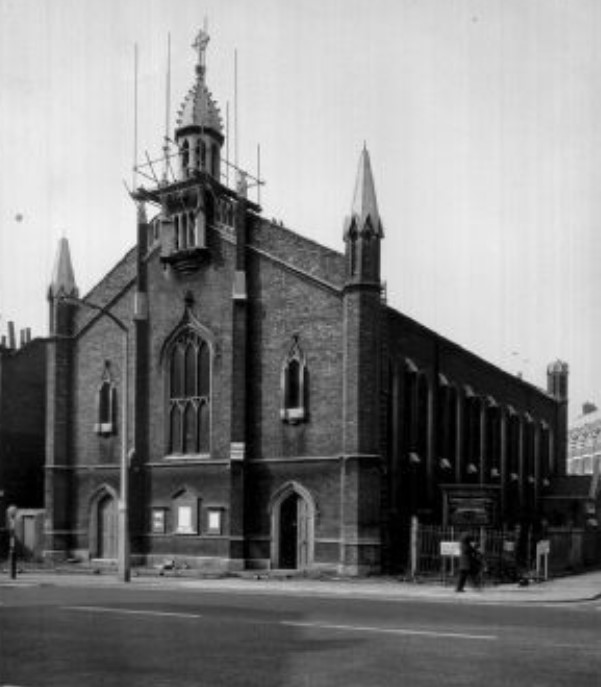Introduction
Richard Trott dedicated most of his life to dairying, working in various dairies across Devon, Somerset and Devon, including at North Perrot and Hardington. The frequent relocation and the demanding daily routines probably had an impact on his children. Although he had seven children who reached adulthood, only his youngest daughter, Lydia, married. However, Richard spent time in London as a young man, and three of his children—Emma, Eva, and Emmor—also experienced living there.
Early life in Devon
Richard Trott was born around 1830 in Clyst Honiton, the son of William and Sarah Trott. By March 1851, he was working as a farm labourer at Cuckford, Stockland, living with his uncle, Henry Trott, who was a farmer of 100 acres.
Move to London
In the early 1850s, Richard moved to London. On 7 April 1853, he married Lydia Larcombe at All Saints, Caledonian Road, Islington. At the time, he was a porter residing at 7 Salisbury Terrace, Caledonian Road, while Lydia lived at 3 Half Moon Crescent, Caledonian Road. She was the daughter of John Larcombe, a Crewkerne dairyman.
Life as a dairyman
Shortly after their marriage, Richard and Lydia returned to the West Country, initially living near Lydia’s hometown of Crewkerne. They adopted dairying as their occupation and way of life.
Their work took them to a multitude of locations. They lived at Woolminstone, Crewkerne, until about 1860. In April 1861, Richard worked as a dairyman at Kilmington, Devon. From 1862 to about 1868, he worked as a dairyman at Wayford and, in 1870, he worked at Haselbury. His subsequent positions included:
April 1871- Dairyman at West Chinnock;
April 1881-Dairyman at Shroton Farm, Iwerne Courtney;
November 1890-Dairy manager at Bridge Close Farm, Hardington;
April 1891- Dairy manager at Eggardon, Askerswell;
October 1893-at Grey Farm Dairy, North Perrott;
March 1901-Dairy manager at Caundle Bishop;
September 1906-at Bound Lane Farm, Leigh.
Hardington
In November 1890, Richard Trott was a dairy manager at Bridge Close Farm. He placed an advert in the Western Gazette stating that he wanted re-engagement to manage a dairy of 40 to 60 cows, adding, “Best cheese and butter makers. Good references.” This demonstrates one of the ways he sought new employment.
Death
Lydia died at Grey Farm Dairy, North Perrott, on 11 October 1893, aged 63.[1]
Richard died at Bound Farm Lane, Leigh, on 29 September 1906, aged 76.[2] He was buried alongside his wife at North Perrott.
Richard did not leave a will, but in 1913, the Blandford probate registry granted letters of administration to his daughter, Edna. His estate was valued at £319-6s-8d.[3]
Children
Richard and Lydia had six sons and four daughters: John Edwin (died at the age of one), Edwin (died at the age of eight), Emma, Edna, Eva, Henry, Emmor, Richard, Lydia and William (died at the age of one).
The family was a closely-knit unit devoted to butter and cheese production. Although the children largely drifted away as they reached adulthood, Henry and Edna continued to work alongside their father until his death. Four of the siblings remained close even after Richard’s death. By April 1911, Henry and his brother, Emmor, were dairymen at Yetminster, and their sisters, Edna and Eva, lived with them. They stayed together, and all four were eventually buried at Yetminster.
The only sibling who married was Lydia, who married Albert Thomas Stainer, a farmer of Yetminster, at Sherborne Wesleyan Chapel on 20 January 1909.[4]
References
[1] Pulman’s Weekly News and Advertiser, 17 October 1893, p.8.
[2] Western Gazette, 19 October 1906, p.12.
[3] National Probate Calendar.
[4] Western Gazette, 5 February 1909, p.12.



